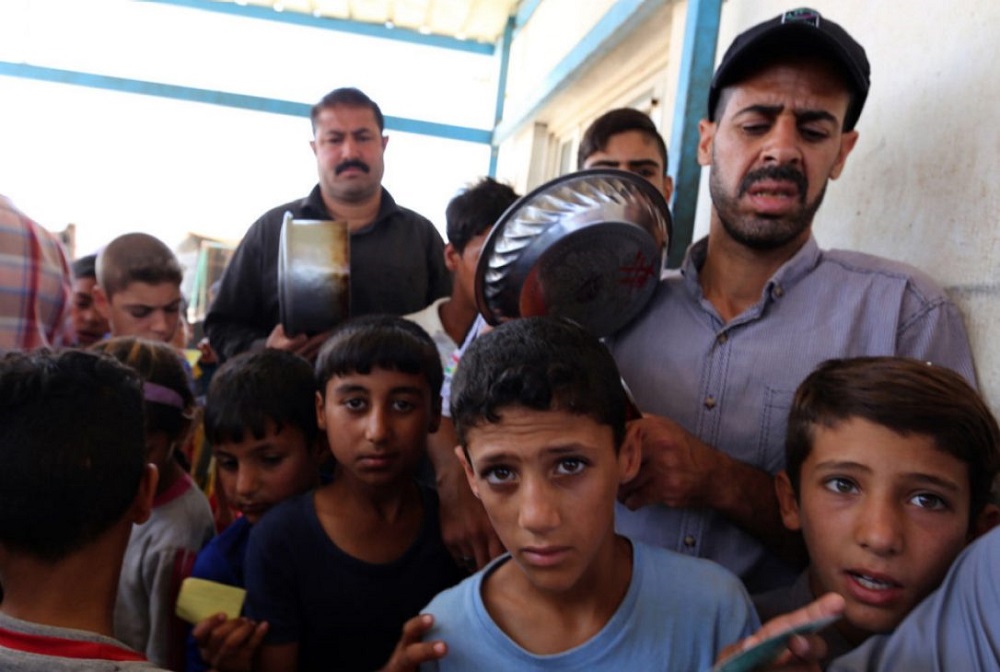London – A United Nations agency warned that most Iraqi families will no longer be able to feed themselves if fighting escalates in the war-torn country.
The World Food Program (WFP) spoke of “unprecedented levels of vulnerability” among the Iraqi population due to years of war and more than half of Iraqi families are at risk of going hungry.
Most families in the country will no longer be able to feed themselves if basic food prices increase or fighting worsens, it said.
WFP Iraq Representative and Country Director, Sally Haydock told Asharq Al-Awsat: “The WFP analysis should direct the work of the government, policy-makers, and employees in the humanitarian field in the country to improve food safety.”
“They should feed every Iraqi,” she added.
“They can’t absorb any more shocks,” said WFP spokeswoman Dina El-Kassaby.
Conflict and instability have stifled food production in Iraq, according to the UN. Farmers face shortages of seeds and fertilizers and many have been forced to abandon their land or sell their animals.
The WFP and Iraqi government study found that 2.5 percent of the population, or more than 800,000 people, are going to bed hungry every night.
There are concerns this figure could increase, as two thirds of internally displaced people and more than half of Iraqis living in their homes have barely enough to feed themselves, said El-Kassaby.
Almost 75 percent of Iraqi children under the age of 15 are working to help their families put food on the table instead of going to school, WFP said.
“Anything that changes the status quo of those families that are on the verge of food insecurity would push them over the edge,” El-Kassaby told the Thomson Reuters Foundation by phone.
The study, which El-Kassaby said was the most comprehensive on food needs ever conducted in Iraq, was based on surveys of more than 20,000 families in urban and rural areas across the country.
It was carried out before the launch of a US-backed campaign to dislodge ISIS from the northern city of Mosul and did not capture the situation of those fleeing fighting there, WFP said.
More than 300,000 people have fled Mosul since the start of the offensive began in October last year, according to the office of the UN Humanitarian Coordinator in Iraq.
